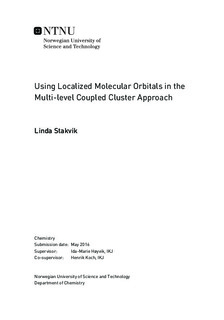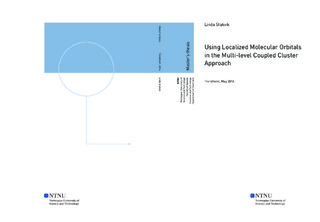| dc.description.abstract | In multi-level coupled cluster theory local orbitals have traditionally been generated us- ing Cholesky decomposition of the Hartree-Fock density matrix. Orbitals obtained through Cholesky decomposition are not very local compared to state-of-the-art localized orbitals, and furthermore dependent on the locality of the Hartree-Fock density matrix. The objective in this master project is to make it possible to run MLCC calculations with any set of local orbitals, and analyze how the choice of orbitals impact the results. The idea is to generate localized orbitals in LSDALTON, in which a variety of localization schemes are already avail- able, and use these orbitals for the multi-level coupled cluster calculation in DALTON. The scheme is tested by calculating excitation energies and total energies for various molecules, both conjugated systems and non-conjugated systems. The results obtained from the dif- ferent orbital sets are expected to significantly improve the results using the multi-level coupled cluster approach. Results have shown that active spaces for non-conjugated sys- tems can be chosen straight-forward, but active spaces for conjugated systems requires more insight. | |

